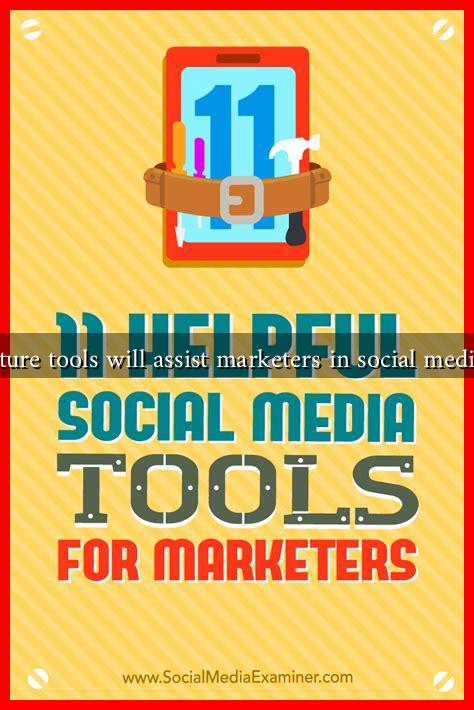-
Table of Contents
What Future Tools Will Assist Marketers in Social Media Selling?
As social media continues to evolve, so too does the landscape of digital marketing. With billions of users engaging on platforms like Facebook, Instagram, TikTok, and Twitter, marketers are constantly seeking innovative tools to enhance their social media selling strategies. This article explores the future tools that will assist marketers in social media selling, focusing on automation, AI-driven analytics, augmented reality, and more.
The Rise of Automation Tools
Automation tools are becoming increasingly essential for marketers looking to streamline their social media selling processes. These tools help manage multiple accounts, schedule posts, and analyze performance metrics, allowing marketers to focus on strategy rather than execution. Some key automation tools include:
- Hootsuite: A comprehensive social media management platform that allows users to schedule posts, track engagement, and analyze performance across various channels.
- Buffer: A user-friendly tool that simplifies the scheduling of social media posts and provides insights into audience engagement.
- Zapier: This tool connects different apps and automates workflows, enabling marketers to create seamless processes between their social media platforms and other marketing tools.
According to a report by HubSpot, 63% of marketers say that automating their social media efforts has improved their overall efficiency. As automation technology continues to advance, we can expect even more sophisticated tools to emerge, allowing marketers to optimize their social media selling strategies.
AI-Driven Analytics for Enhanced Insights
Artificial Intelligence (AI) is revolutionizing the way marketers analyze data. AI-driven analytics tools can process vast amounts of data in real-time, providing insights that were previously unattainable. These tools can help marketers understand customer behavior, preferences, and trends, enabling them to tailor their social media selling strategies effectively. Some notable AI-driven analytics tools include:
- Google Analytics: While not exclusively for social media, Google Analytics offers powerful insights into how social media traffic contributes to overall website performance.
- Sprout Social: This platform uses AI to analyze engagement metrics and audience demographics, helping marketers refine their social media strategies.
- Crimson Hexagon: A social media analytics tool that leverages AI to provide insights into consumer sentiment and brand perception.
According to a study by McKinsey, companies that leverage AI in their marketing strategies can increase their profitability by 38% by 2035. This statistic underscores the importance of integrating AI-driven analytics into social media selling efforts.
Augmented Reality (AR) for Immersive Experiences
Augmented Reality (AR) is set to transform social media selling by providing immersive experiences that engage consumers in new ways. Brands can use AR to create interactive advertisements, virtual try-ons, and product demonstrations. For example:
- Snapchat: The platform has successfully integrated AR features, allowing users to try on makeup or clothing virtually before making a purchase.
- IKEA Place: This app allows customers to visualize how furniture will look in their homes using AR technology.
- Sephora: The beauty retailer uses AR to enable customers to try on makeup virtually, enhancing the shopping experience.
As AR technology becomes more accessible, marketers will increasingly leverage it to create engaging social media selling experiences that drive conversions.
Social Commerce Platforms
Social commerce is the integration of e-commerce and social media, allowing users to purchase products directly through social platforms. As this trend continues to grow, marketers will need to adapt their strategies to leverage social commerce effectively. Key platforms leading the charge include:
- Instagram Shopping: This feature allows brands to tag products in their posts, enabling users to shop directly from the app.
- Facebook Shops: A dedicated space for businesses to showcase their products and facilitate transactions within the Facebook ecosystem.
- Pinterest Shopping: Pinterest has introduced features that allow users to shop directly from pins, making it easier for brands to reach potential customers.
According to eMarketer, social commerce sales are expected to reach $600 billion by 2027, highlighting the importance of integrating social commerce into marketing strategies.
Conclusion
The future of social media selling is bright, with a plethora of tools and technologies set to enhance marketers’ capabilities. From automation tools that streamline processes to AI-driven analytics that provide deep insights, marketers have an array of resources at their disposal. Additionally, the rise of AR and social commerce platforms will create new opportunities for engagement and conversion. As these tools continue to evolve, marketers must stay informed and adapt their strategies to leverage these innovations effectively. By doing so, they can not only enhance their social media selling efforts but also drive significant business growth in the digital landscape.
For more insights on social media marketing trends, visit HubSpot’s Marketing Statistics.

